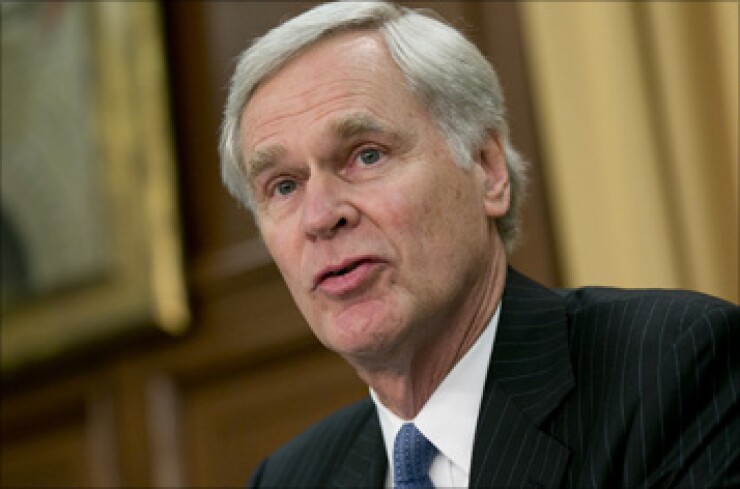
WASHINGTON – The House Appropriations Committee on Thursday approved a fiscal 2017 appropriations bill that would reduce funds for the Internal Revenue Service, the Securities and Exchange Commission and the District of Columbia.
The committee approved the bill by a vote of 30-17. It would provide $21.7 billion in funding, $1.5 billion below the fiscal 2016 enacted level and $2.7 billion below President Obama's request, according to the committee.
"The legislation targets resources to programs that will help boost economic growth and opportunity, protect consumers and investors, promote an efficient federal court system, and stop financial crime," House committee members said Thursday. "To make these investments within a tight budget, the legislation reduces funding for lower-priority or underperforming programs and agencies."
The bill includes $10.9 billion for the IRS, which is $236 million below the fiscal 2016 enacted level and $1.3 billion below President Obama's request. It provides $2.1 billion for taxpayer services and additional $290 million to improve customer service.
Rep. Ander Crenshaw, R-Fla., chair of the House Appropriations Committee's financial services panel, said the "bill reduces funding for agencies that we believe can produce results with fewer dollars."
"Where there is a history of inappropriate behavior, such as the Internal Revenue Service, cutbacks and reforms are recommended to hold them accountable," he added.
The federal funding includes several provisions aimed at restricting the IRS use of funds: One would prohibit the IRS from using funds to target groups based on their ideological beliefs or groups for exercising their First Amendment rights. Another would prohibit the use of funds to implement an order from the president for the IRS to determine the tax-exempt status of an organization. The bill also would require "extensive reporting" on IRS spending.
Committee members said Thursday that the IRS is receiving additional oversight and transparency requirements to "ensure tax dollars are properly used and the agency is acting responsibly."
Earlier this week, the tax-exempt bond subcommittee of an IRS advisory panel recommended the agency do more targeted audits to improve compliance amidst strained financial resources and staff.
The appropriations committee adopted an amendment to the bill that would prohibit funding for the IRS to audit a church unless approved by the IRS commissioner and reported to the tax committees. That amendment, introduced by Rep. John Culberson, R-Texas, passed by a 31-17 vote.
The legislation also would provide $1.5 billion for the Securities and Exchange Commission, which is $50 million below the fiscal 2016 enacted level and $226 million below President Obama's request. Committee members said this funding would focus on information technology initiatives and the agency's economics division to help it better serve investors.
The bill would rescind the unobligated balances of the SEC's reserve fund, which the committee believes is a slush fund created under Dodd-Frank that the commission can freely spend without congressional oversight.
The bill also would provide a $725 million federal payment to the District of Columbia, which is $4.6 million below the fiscal 2016 enacted level and $38 million below the president's request. In a summary of the bill, the committee said the funding will be used for public safety and security costs as well as other essential services.
This comes after the district passed its $13.4 billion fiscal 2017 budget despite Republican lawmakers threatening legal and administrative charges against district officials for not seeking congressional approval for appropriations.
Federal law states D.C.'s annual budget must pass a two-thirds council vote as well as an appropriation passed by Congress and signed off by the president.
The district has advocated for budget autonomy and home rule, but those efforts have been met with legislation by Republicans in the House that would repeal D.C.'s Local Budget Autonomy Act of 2012 and amend its Home Rule Act of 1973 to clarify that district funds are subject to congressional approval.
The financial services and general government appropriations bill also provides funding for the Judiciary, the Small Business Administration and other related agencies.





